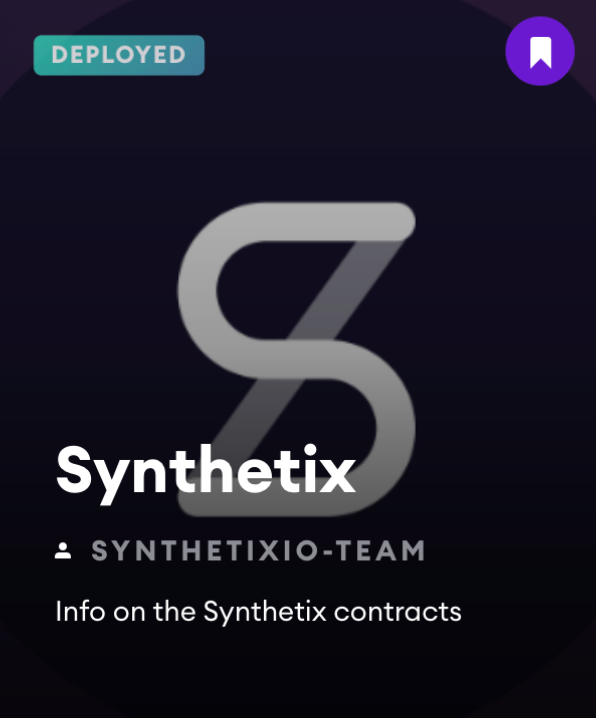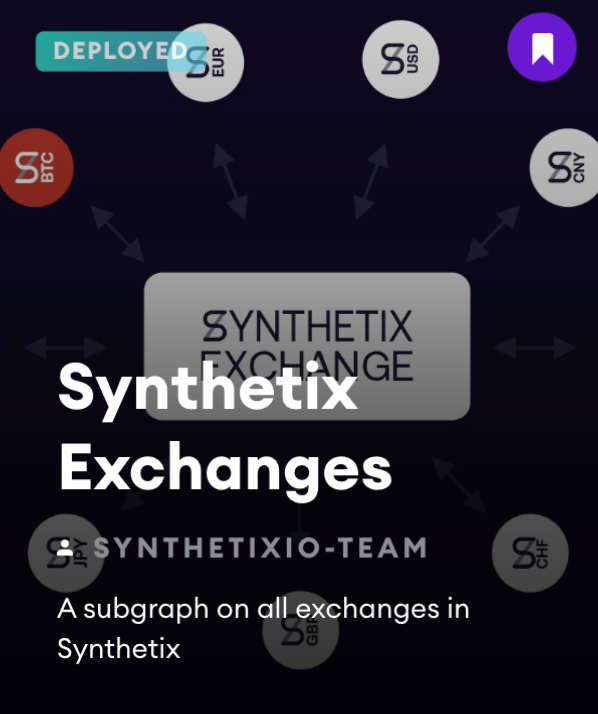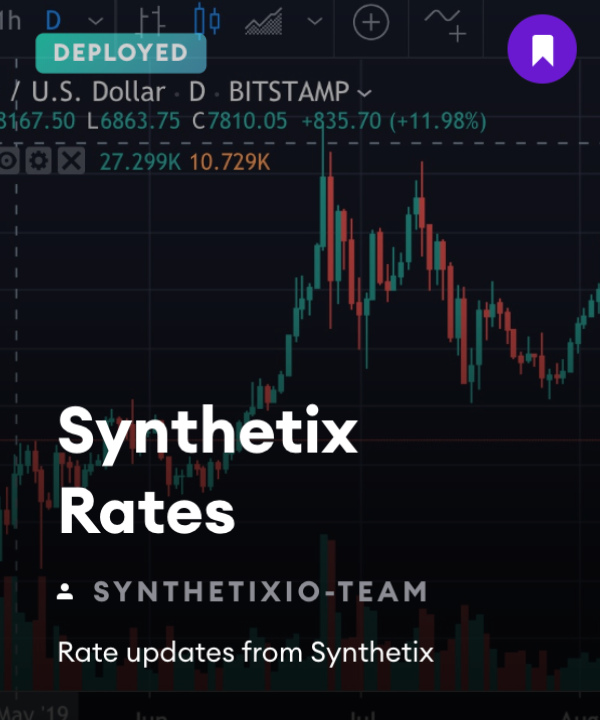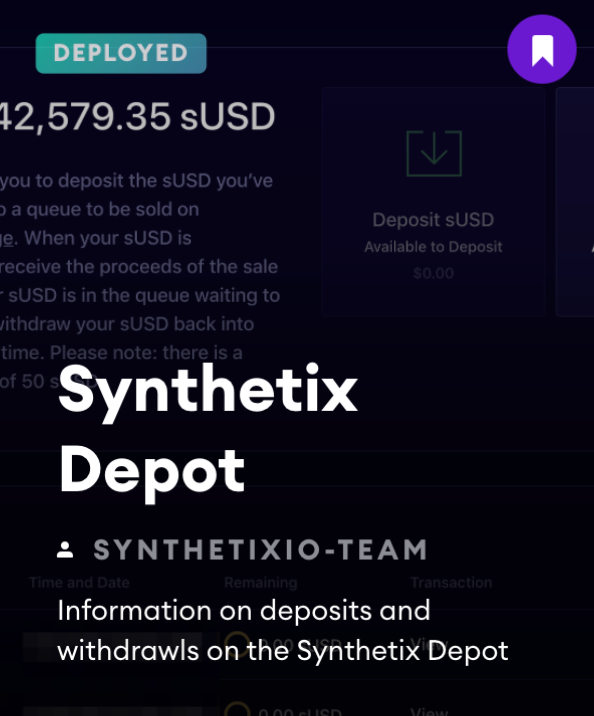Historical Data¶
Tip: The Synthetix Dashboard
Synthetix has a custom dashboard app - https://dashboard.synthetix.io - which shows a number of key metrics within the system. Some of the dashboard is powered by the subgraphs below and some by an internal metrics gathering system (closed source). We are in the process of migrating towards the Graph for our entire dashboard: Synthetixio/synthetix#254
There are a number a ways to access Synthetix's historical data.
- Query Synthetix event log history and calls using The Graph subgraphs
- Fetch state at some block in the past using an Archive Node
- Query event logs directly via the EVM
- Use a third party service like Google BigQuery or DuneAnalytics
The Graph¶
Synthetix has indexed protocol data on the Graph, a decentralized network for querying Ethereum data. The Graph allows for the creation of custom data sets, aka "subgraphs", which are easily queryable. Synthetix currently has four separate subgraphs for retrieving information specific to Synthetix smart contracts. A subgraph is an entity-based data source which replays all transactions since the genesis block and uses custom code to create queryable entities as each block is processed.
Since dealing with the Graph directly can be time consuming, we've written a custom JavaScript library to help users obtain Synthetix data and abstract away the complexity of dealing with these subgraphs. It's called synthetix-data, and it's an npm module to query historical or subscribe to these events in real time.
Alternatively, each of these subgraphs can be queried using GraphQL - follow the links below to query the subgraphs using GraphQL in the data explorer UIs provided.
The code for these subgraphs is up at: Synthetixio/synthetix-subgraph
Query event logs directly on the EVM¶
Instead of using the subgraphs provided, you could directly query the EVM via most free providers (such as Infura or Etherscan).
E.g. Get all Synthetix.SynthExchange events
1 2 3 4 5 6 7 8 9 10 11 12 13 14 15 16 17 18 19 20 21 22 23 24 25 26 27 28 29 30 31 32 33 34 35 36 37 38 39 40 41 42 43 44 45 46 47 48 | |
Using an Archive Node¶
You can also use an Ethereum node with full historical state (an archive node) to read the blockchain state at some block in the past.
Query using the { blockTag: <Number> } option to get state at a previous block (note the call will fail if the contract was not deployed at the block). Note: usage of this feature of ethers and web3 requires a provider that is a full archive node. Infura and QuikNode both provide access to archive nodes for monthly costs. This is supported in SynthetixJs via the underlying .contract property in every contract target.
E.g. fetch Synthetix.totalIssuedSynths() from a block in the past
1 2 3 4 5 6 7 8 9 10 11 12 13 14 15 16 17 18 19 20 21 22 23 24 25 26 27 28 29 30 31 | |
Third Party Services¶
There are a number of third parties services that provide queryable datasources for generic smart contract usage:



